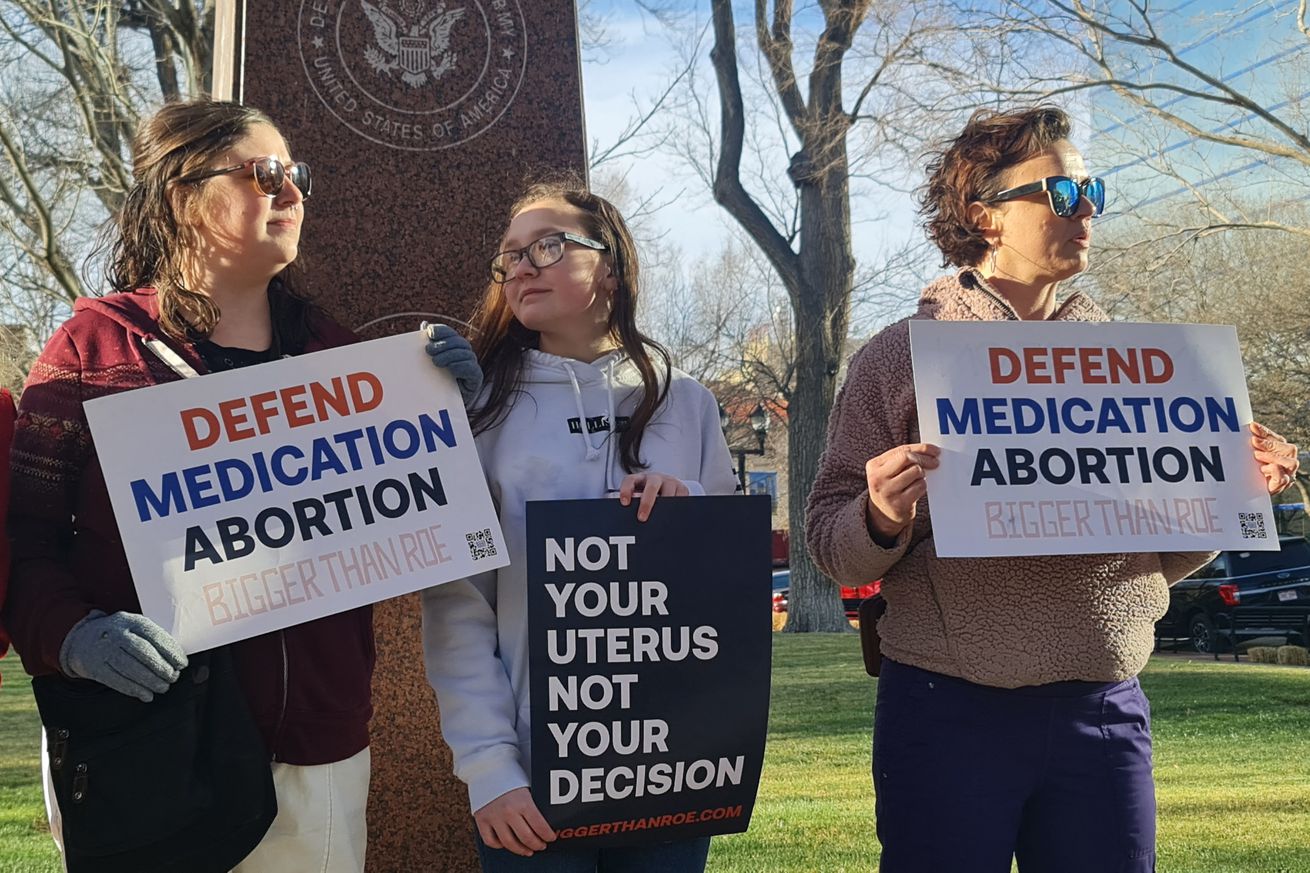
A Texas court ruling just threatened abortion pill access nationwide
A Texas judge ruled on Friday that the Food and Drug Administration improperly approved the abortion-facilitating pill mifepristone more than 20 years ago, just as a Washington state judge issued a directly conflicting ruling — setting up a likely Supreme Court fight and potentially threatening nationwide access to reproductive healthcare.
In Texas, District Judge Matthew Kacsmaryk issued a long-awaited decision on a suit from the Alliance Defending Freedom, which filed on behalf of antiabortion medical groups and doctors against the FDA. Kacsmaryk — nominated by former President Donald Trump — ruled largely in the group’s favor. While he didn’t outright reverse the FDA’s decision, he issued a stay that’s supposed to revert mifepristone to its preapproval status as the case continues. The ruling gave the Department of Justice seven days to seek emergency relief from an appeals court, which it’s already done.
In a statement, President Joe Biden called the decision “another unprecedented step in taking away basic freedoms from women and putting their health at risk,” saying his administration would continue to fight it in court. He also called on voters to elect lawmakers who would pass explicit protection for abortion access, calling it “the only way” to stop future decisions along the same lines.
Meanwhile, Judge Thomas Rice, in Washington, has issued a contradictory ruling. Rice was responding to a lawsuit from 17 states and the District of Columbia that sought an expansion of mifepristone access. He didn’t grant that expansion, but he approved an injunction against “altering the status quo and rights as it relates to the availability of mifepristone” in those states as that case proceeds.
Washington state Attorney General Bob Ferguson interpreted this ruling as protecting mifepristone access in the states (listed on the ruling) that participated in the case. “The judge’s ruling in our case preserves the status quo on ensuring that access to mifepristone remains available,” Ferguson told NPR. For other states, he said, “the Texas judge’s ruling seriously has the potential to eliminate that access for mifepristone here in the coming days.”
But some of those states have disputed the idea that Kacsmaryk’s ruling outlaws medication abortion — a procedure that’s widely considered safe and accounts for more than half of US abortions. “Abortion is still legal and accessible here in California and we won’t stand by as fundamental freedoms are stripped away,” said the office of California Governor Gavin Newsom following the ruling. Likewise, New York Attorney General Letitia James issued a statement that “abortion continues to be legal in New York and New York will remain a safe haven for anyone seeking abortion care.”
Even so, the decision in Texas potentially throws the FDA’s authority to effectively approve any drug in doubt, particularly since it takes aim at one that was approved back in 2000 and has been in steady use since then. The Texas case has been watched carefully by legal experts, even amid attempts to limit public scrutiny of it — prior to the ruling, Kacsmaryk kept a pivotal hearing’s schedule secret until its existence was revealed by The Washington Post. “If this ruling were to stand, then there will be virtually no prescription, approved by the FDA, that would be safe from these kinds of political, ideological attacks,” Biden’s statement warns.
The case is also notable for relying on the Comstock Act, a 150-year-old obscenity law that, among other things, bans the shipping of materials related to abortion. The opinion approvingly interprets its ban on any “article, instrument, substance, drug, medicine, or thing which is advertised or described in a manner calculated to lead another to use it or apply it for producing abortion” as a ban on mailing mifepristone even for legal abortions. “The statute plainly does not require intent on the part of the seller that the drugs be used ‘unlawfully,’” Kacsmaryk writes. It’s the latest sign that long-dormant obscenity rules are being resurrected following an unsuccessful attempt to ban books in Virginia using a mostly forgotten state statute.
But in the short term, the ruling’s potential effects are muddy and reliant on the Fifth Circuit Court of Appeals, which could reverse the stay. (The Fifth Circuit is notably the one that allowed a ban on internet moderation to stand in 2022.) In February, members of the nonprofit Women’s Law Project argued that the FDA had substantial power to limit the ruling’s effects even if it were allowed to stand. Its response may determine whether manufacturers and sellers of the drug maintain patients’ access to the pill in the face of legal uncertainty.
This uncertainty also doesn’t eliminate the practical ability to obtain a medication abortion in the US. The suit only covers mifepristone, part of a two-drug combination that’s commonly prescribed to terminate pregnancy. The second half of the combination, misoprostol, is also an effective abortifacient in its own right — in addition to being used for other conditions like ulcers. Organizations like Plan C offer comprehensive guides for access to misoprostol, although anyone ordering it in states where abortion is banned could face legal risks doing so.
The ruling is, however, yet another signal of the precarity of reproductive healthcare nationwide — even in states where it’s still legal.

